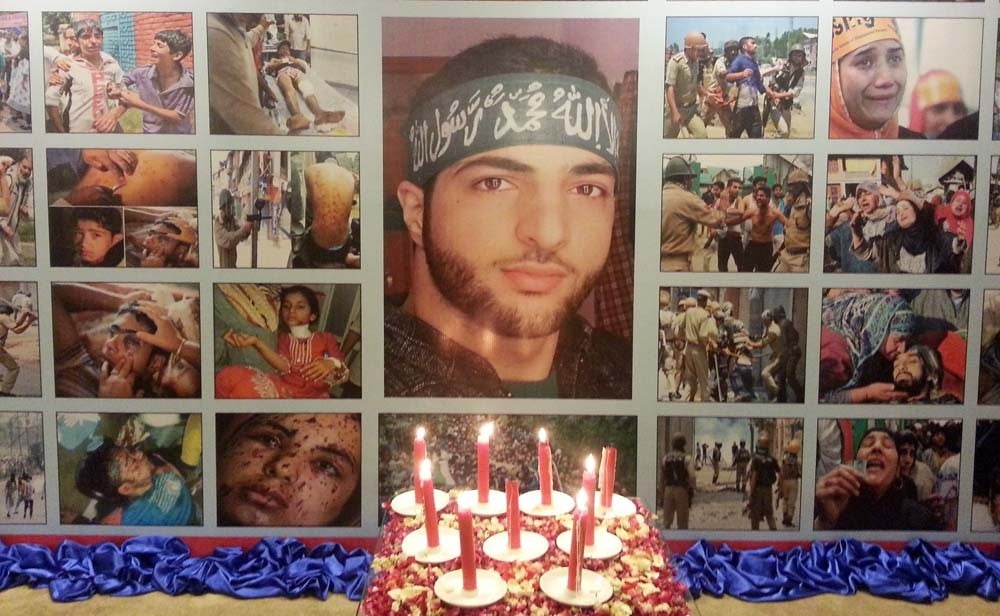
The struggle has been transferred to the next generation and Wani was only a proof

Wrapped up in Pakistani flag, 21-year-old Burhan Muzaffar Wani was buried in the Indian held Kashmir as a celebrated freedom-fighter amid thousands of mourners chanting slogans against India and women singing traditional songs to commemorate the heroic death of their young soldier.
Wani, influential commander militant active against state oppression, was killed in a military operation on July 8 in the valley of Kashmir. In the protests that followed his death, at least 42 people have been killed and dozens seriously injured by the Indian forces.
Wani was on top of the most-wanted list; there was bounty of worth one million Indian rupees on him. The Indian army launched a massive crackdown to stop these protests which are increasingly been seen as indigenous.
Wani, son of a school headmaster in Taral in south Kashmir, joined Hizbul Mujahideen -- a militant group fighting for freedom in India -- six years ago when he saw the brutal killing of his elder brother Khalid Wani as a sympathiser and facilitator of militants fighting against the Indian army.
15 year old Wani left school and took hold of a gun to take revenge from the Indian army. In the six years, his biggest tool to motivate the Indian Kashmiri youth was social media.
"We are safe now because we have already transferred the struggle to the next generation. The cause is bigger than the individual. There will be no leaders, no one subscribes to any leaders anymore. Even a call for calm by Geelani has not helped defuse the situation," Nirupama Subramanian, a senior Indian journalist, quotes a Kashmiri youth in her recent article, Face the Delusion, in The Indian Express.
Read also: World of indifference
Such violence against Kashmir’s resistance movement is not new even in the recent history of this Kashmiri struggle and state oppression. In 2008, as many as 60 people were shot when Kashmiris protested at the grant of hundreds of acres of land to a temple trust. For them, it was an Indian attempt to change the demographic of their Muslim-majority region.
Baba Umar, a senior Kashmiri journalist and political commentator, says "To Kashmiris, Burhan will go in Kashmir’s history as one of the influential and talismanic figure who single-handedly united Kashmiris who are now serious about their cause for Independence."
Wani’s death and subsequent Indian force has relaunched a dormant struggle inside Kashmir while putting back the moral question inside the corridors of Indian intelligentsia over whether India should continue holding on to Kashmir militarily. "What the 21-year old Burhan has done, thousands of articles and books supporting Kashmir struggle for independence wouldn’t do. In fact, this is being realised by Indian authors and political commentators too who are now calling for holding referendum in Kashmir," he says.
The peaceful movements of 2008, 2010, were crushed brutally. "Those seeing the meteoric rise of Burhan and deadly Indian reaction would be forced to think that violence pays," says Umar.